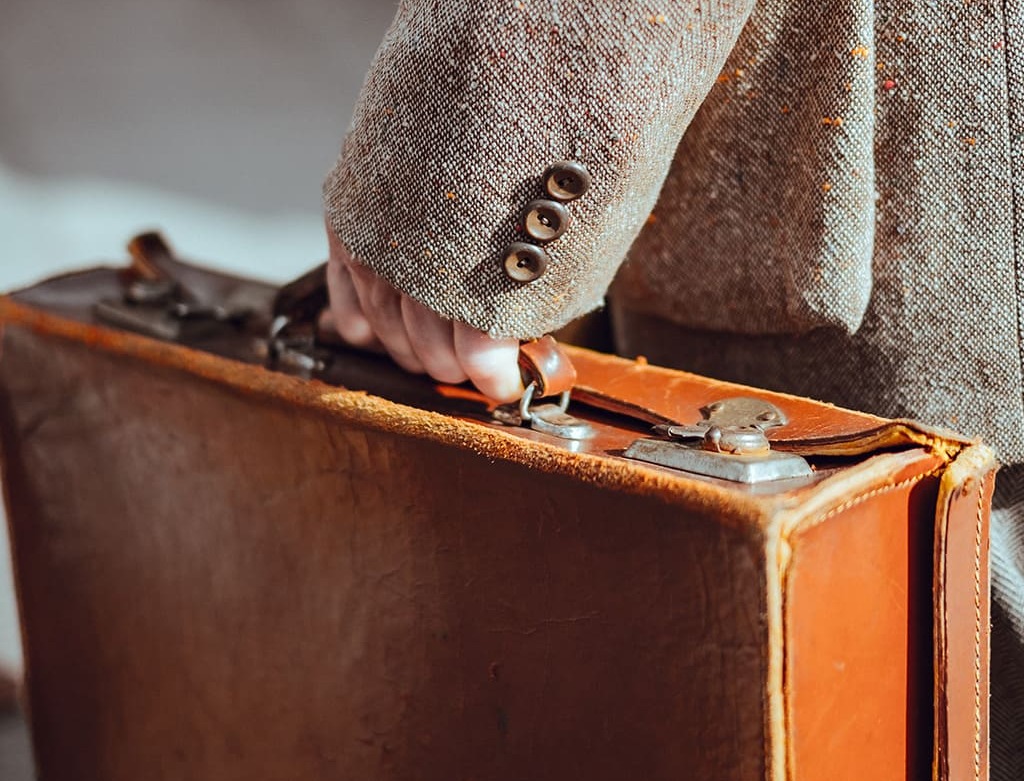
Description of educational activity
Throughout its history, Montréal has welcomed immigrants—people who have left their homes, whether for economic, political, religious, or personal reasons, to start a new life here. And whether their decision was spontaneous or carefully considered, it required them to pack their bags before arriving in the city and putting down roots. The activity What Will You Pack? invites students to revisit Montréal’s history through the prism of immigration, and to build empathy and understanding for the many ways that people experience this major transition.
What Will You Pack? takes place at the MEM in two stages:
- A visit of the permanent exhibition, with a focus on immigration. Students learn about the factors that have led people to settle in Montréal, the major waves of migration that have shaped the city, the life paths of newcomers, and how immigrants contribute to the city.
- The role-playing workshop What Will You Pack? In teams, students have to decide what to pack for the big journey. They have difficult choices to make, especially since some students have more resources than others. As they pack their suitcases, they have to take into account why they are leaving, the circumstances of the journey itself, and their financial means.
The visit and workshop scenarios are linked to specific historical periods and adapted to the students’ grade level.
Objective
- Identify the principal characteristics of the major waves of immigration to Montréal and Québec in the 1800s and 1900s.
- Identify the different types of migration and the factors that influence the decision to migrate.
- Develop greater empathy and understanding for the range of migration experiences, and give a human face to migration.
Links to the Québec Education Program (QEP)
Elementary Cycle 3
Cross-Curricular Competencies
- Solve problems
- Exercise critical judgement
- Construct one’s identity
- Cooperate with others
Geography, History and Citizenship Education
Competencies
- Understand the organization of a society in its territory
- Establish elements of continuity with the present
- Be open to the diversity of societies and their territories
Progression of learning
- Canadian society around 1820
- Québec society around 1905
- Québec society around 1980
- The visit and workshop scenarios are linked to specific historical periods and adapted to the students’ grade level.
Culture and Citizenship in Quebec
Competencies
- Considers own feelings and recognizes emotions
- Inquires about the ideas of others
- Discerns characteristics of relationships between people, groups, or institutions
- Proposes responses and justifies choices
Themes and subthemes
- Self-awareness and construction of identity
- Dimensions of personal identity
- Personal and collective values
- Cultural integration
- Collective life
- Social diversity and shared culture
- Rights and freedoms
- Search for meaning
- Success and adversity
- Role models in life
Secondary
Cross-Curricular Competencies
- Solve problems
- Exercise critical judgement
- Construct one’s identity
- Cooperate with others
Geography, History and Citizenship Education
Competencies
- Develop an understanding of citizenship through the study of history
Progression of learning
- History of Québec and Canada—demographic and social dimensions
- Contemporary world—population
Culture and Citizenship in Quebec
Competencies
- Considers own feelings and recognizes emotions
- Inquires about the ideas of others
- Discerns characteristics of relationships between people, groups, or institutions
- Proposes responses and justifies choices
Themes and subthemes
- Identities and belongin
- Dimensions of personal identity
- Plural identities
- Collective life and public space
- Cultural heritage
- Social diversity
This activity was developed in collaboration with Je suis Montréal and the Groupe de recherche sur l’éducation et les musées.
The MEM is listed in the Répertoire culture-éducation. The activity is eligible for financial support through the Sorties scolaires en milieu culturel.
Educational vision
The MEM's educational offering is the fruit of a collective effort involving a committee of some fifteen teachers and education specialists, as well as community partners working in the fields of civic engagement, living together and accessibility.
Our educational programs aim to equip young people to become citizens interested in their city, its challenges and its history. They aim to foster their awareness of the importance of living together and their commitment to their community.
Our programs talk about Montreal, its history, its territory and its people, through such perspectives as neighborhoods, immigration, citizen power and disability. The varied activities that make up our programs encourage students to share their experiences, develop critical thinking skills and empathy, and foster civic engagement.